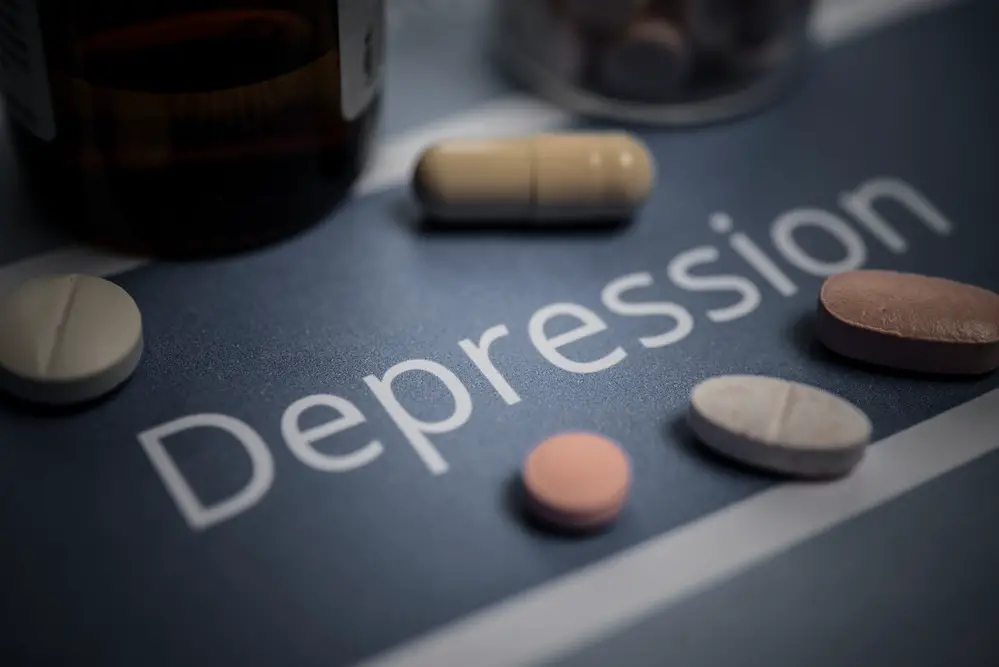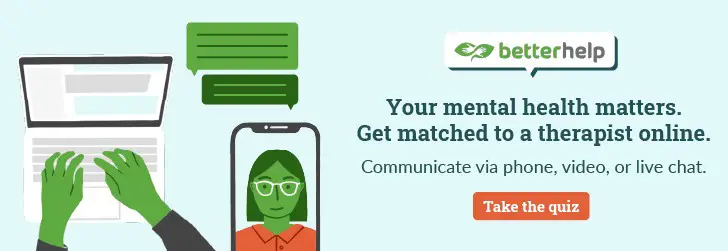As a BetterHelp affiliate, we receive compensation from BetterHelp if you purchase products or services through the links provided
Depression is a severe mental health condition that affects millions of people all around the world. It can cause feelings of intense sadness, hopelessness, and low self-esteem. But what exactly is depression? The clinical definition of depression involves more than just feeling down or having bad days; it’s a medical diagnosis with clear symptoms and treatment options available to those who suffer from it. In this blog post, we’ll discuss the clinical definition of depression and its symptoms, causes, treatments, and coping strategies for managing depressive episodes in adolescents specifically. We will also explore how many kids are affected by depression and advise getting help if you or someone close to you suffers from this debilitating disorder.
Table of Contents:
Clinical Definition of depression
Depression is a mental health disorder that can affect how an individual feels, thinks, and behaves. It is characterized by persistent feelings of sadness or loss of interest in activities once enjoyed. Depression can also cause physical symptoms such as fatigue, insomnia, and headaches.
Symptoms of Depression:
The primary symptom of depression is a persistently low mood that lasts for two weeks or more. Other common symptoms include: feeling hopeless or helpless; having low self-esteem; experiencing guilt or worthlessness; difficulty concentrating; changes in appetite or weight; sleep disturbances (insomnia); agitation or restlessness; slowed thinking and movements; fatigue or lack of energy; thoughts of death or suicide.
Diagnosis Of Depression:
A diagnosis of depression requires a comprehensive evaluation by a qualified healthcare professional such as a psychiatrist, psychologist, social worker, nurse practitioner, or physician assistant. This evaluation is used to assess the presence and severity of depressive symptoms as well as any other contributing factors that may be present. Additionally, a thorough medical history will be taken to rule out any underlying medical causes for the depressive symptoms being experienced.
Causes Of Depression:
There are many potential causes for depression, including biological factors (genetics), environmental stressors (such as traumatic events), psychological issues (low self-esteem) , certain medications, and chronic illnesses. Additionally, lifestyle choices like poor diet, lack of exercise, alcohol abuse, and smoking can contribute to the development and maintenance of depression.
Treatment Options For Depression :
Treatment options vary depending on the type and severity but generally involve some combination of psychotherapy (cognitive behavioral therapy ), medication management, lifestyle modifications(exercise healthy eating habits ), relaxation techniques( yoga meditation ), and support groups. In severe cases, hospitalization may be necessary.
Coping Strategies For Depression :
Coping strategies are essential tools when dealing with depression since they provide individuals with ways to manage their emotions to reduce distress levels. Some coping strategies include mindfulness exercises, journaling, spending time outdoors, engaging in creative activities, talking with friends and family members seeking professional help, taking care of your body through proper nutrition exercise, getting enough sleep, etc..
Causes Of Depression In Adolescence :
Adolescent years can bring about significant physical and emotional changes, leading to an increased risk of developing depressive symptoms. Common triggers include peer pressure, academic performance pressures, changing relationships, family dynamics, and identity formation. Factors such as genetic predisposition, past trauma, and life stressors all increase the likelihood of an adolescent developing clinical-level depression requiring treatment intervention.
Depression is a severe mental health condition that can affect anyone, regardless of age or background. It’s essential to understand the clinical definition of depression to recognize and address its symptoms. Let’s explore the signs and symptoms of depression next.
Symptoms of Depression
Persistent feelings of sadness, emptiness, or hopelessness characterize it. Common symptoms of depression include changes in mood, energy levels, sleep patterns, appetite, and concentration.
Mood: People with depression often experience various emotions, including sadness, irritability, anger or guilt. They may also feel numb or disconnected from their environment and activities they used to enjoy.
Energy Levels: Those suffering from depression may find it challenging to get out of bed in the morning due to low energy levels and fatigue throughout the day. This can lead to difficulty completing everyday tasks such as work or household chores.
Sleep Patterns: Depression can cause sleep disruptions, further exacerbating symptoms such as fatigue and lack of motivation during the day hours. Insomnia is common among those who suffer from depression; however, some individuals may also experience hypersomnia (excessive sleeping).
Appetite: Changes in appetite are common among those with depression. Some individuals may lose interest in food altogether, while others might turn towards comfort foods for solace resulting in weight gain over time.
Concentration problems are another symptom associated with depression; this could manifest through difficulty focusing on tasks at hand or making decisions due to an inability to think clearly about them. Memory issues may also be present, as well as a general feeling of being overwhelmed and unable to concentrate.
Depression can manifest in many ways, from physical symptoms to changes in mood and behavior. Recognizing the signs of depression is an important first step in getting a diagnosis and seeking treatment. Now let’s look at how depression is diagnosed.
Diagnosis of Depression
Diagnosing depression can be difficult, as there are many types of depression with varying symptoms. A diagnosis of depression requires a comprehensive evaluation by a qualified mental health professional such as a psychiatrist or psychologist.
The criteria for diagnosing major depressive disorder (MDD) include the presence of at least five out of nine specific symptoms, including depressed mood, loss of interest in activities once enjoyed, changes in appetite or weight, sleep disturbances, psychomotor agitation or retardation, fatigue or loss of energy, feelings of worthlessness or guilt, difficulty concentrating and recurrent thoughts about death and suicide. These symptoms must have been present for two weeks to meet the criteria for MDD.
In addition to evaluating the patient’s history and current symptomatology to make an accurate diagnosis, other factors may also be considered, such as family history and any medical conditions that could contribute to depressive symptoms. The clinician will also consider if the patient has experienced any traumatic events recently which could trigger an episode of depression. Clinicians must consider all these factors when making their diagnosis to provide appropriate treatment recommendations tailored specifically to each case.
Once diagnosed with MDD, patients must seek help from their healthcare provider. Together they can develop an effective treatment plan which may involve medication management combined with therapy sessions aimed at addressing underlying issues contributing to their condition, such as cognitive behavioral therapy (CBT). CBT focuses on helping individuals identify negative thought patterns associated with depression while teaching them strategies to cope with stressors more effectively, thus reducing episodes associated with MDD over time.
Depression is a severe mental health disorder that can be difficult to diagnose. Understanding the symptoms and criteria for diagnosis is essential in seeking help, which will be discussed further in the next heading.
Causes of Depression
Depression is a complex mental health disorder that various factors can cause. Genetics, environmental influences, and psychological issues are all potential causes of depression.
Genetics: Research has found that genetics play an essential role in developing depression. People with a family history of depression may be more likely to experience it themselves due to inherited genetic traits or predispositions.
Environmental Factors: Certain life events such as trauma, loss, abuse, neglect, or significant changes can trigger depression in some people. Additionally, living in poverty or other stressful environments can increase the risk of developing depressive symptoms over time.
Psychological Issues: Depression can also be linked to certain personality traits, such as low self-esteem and negative thinking patterns, which may lead to feelings of hopelessness and helplessness over time. Other psychological issues like anxiety disorders and substance use disorders have been associated with an increased risk of developing depression as well.
Adolescents are particularly vulnerable to developing depressive symptoms due to their changing hormone levels during puberty, with social pressures from peers and school-related stressors such as academic performance expectations or bullying behavior from classmates. Additionally, adolescents who lack supportive relationships at home may struggle more with feeling overwhelmed, leading them towards feelings of sadness, loneliness, guilt, worthlessness, fatigue, and irritability.
Various factors, including genetic predisposition, environmental influences, and life events, can cause depression. With the right treatment plan tailored to an individual’s needs, it is possible to manage the symptoms of depression. Next, we will discuss different treatment options for depression.
Treatment Options for Depression
Psychotherapy is a common treatment option for depression. It involves talking with a trained mental health professional to identify and address the underlying causes of depression. This type of therapy can help individuals learn how to manage their emotions, thoughts, and behaviors in order to reduce symptoms of depression. Examples include cognitive-behavioral therapy (CBT), interpersonal therapy (IPT), dialectical behavior therapy (DBT), and psychodynamic psychotherapy.
Medication is another form of treatment for those suffering from depression. Antidepressants are the most commonly prescribed medications used to treat this condition, although other types may be recommended depending on individual needs. Common antidepressants include selective serotonin reuptake inhibitors (SSRIs) such as Prozac or Zoloft; tricyclic antidepressants such as Elavil; monoamine oxidase inhibitors (MAOIs) such as Nardil or Parnate; and atypical antidepressants like Wellbutrin or Remeron.
Lifestyle changes can also be beneficial in treating depression. Exercise has been shown to improve mood by releasing endorphins that make us feel good, while eating healthy foods helps provide our bodies with essential nutrients needed for optimal functioning. Additionally, getting enough sleep each night is vital since lack of rest can worsen depressive symptoms over time. Finally, engaging in activities that bring joy into one’s life—such as spending time with friends and family members—can help lift spirits during difficult times.
Alternative therapies are often sought by those looking for additional treatments beyond traditional medicine when managing mental health issues like depression. These approaches may involve yoga, meditation, acupuncture, aromatherapy massage or herbal remedies, all known to reduce stress levels associated with this disorder.
Treatment options for depression can vary, but finding the right approach that works for you is key to managing your symptoms. Coping strategies such as relaxation and lifestyle changes can also help improve your overall well-being.
Coping Strategies for Depression
Depression can be complex to manage, but many strategies can help. Developing healthy habits such as regular exercise and getting enough sleep can improve your mood and reduce stress levels. Eating a balanced diet with plenty of fruits, vegetables, and whole grains is also important for mental health. Additionally, reaching out to support networks such as family members or friends can provide comfort during difficult times.
Engaging in self-care activities like yoga or meditation may also be beneficial in managing depression symptoms. Taking time each day to relax and practice mindfulness techniques like deep breathing exercises or progressive muscle relaxation can help reduce anxiety levels and promote better emotional regulation. Participating in creative activities such as painting or writing poetry may also offer an outlet for expressing emotions without judgment from others.
In addition to these coping strategies, seeking professional help is often necessary when dealing with depression symptoms that interfere with daily functioning. Psychotherapy sessions with a licensed therapist can be beneficial in identifying underlying causes of depression while providing the tools needed to manage it effectively over time. A doctor may also prescribe medication after evaluating the individual’s specific needs.
Coping strategies such as relaxation techniques, mindfulness, and positive thinking can help to reduce the symptoms of depression. It is essential to understand the causes of depression in adolescence to develop effective coping strategies for young people.
Causes of Depression In Adolescence
Adolescence is a time of transition and growth, but it can also be a period of emotional distress. Depression in teens is more common than many people realize, with up to 20% of adolescents experiencing symptoms of depression at any given time. Parents and other adults need to understand the causes of teenage depression to help young people get the support they need.
One major cause of adolescent depression is hormonal changes that occur during puberty. These hormones affect brain chemistry, leading to mood swings and feelings such as sadness or irritability. Other biological factors may also contribute to teen depression, including genetics or physical illnesses like diabetes or thyroid disease.
Environmental factors are another potential cause of teenage depression. Stressful life events such as divorce, moving homes, bullying or abuse can all lead to depressive symptoms in teens who may not have the skills yet to cope with these challenges effectively. Poor relationships with family members or peers can also increase the risk for developing depressive disorders in adolescence due to a lack of social support and increased isolation from others in their age group.
Finally, mental health issues like anxiety disorder may significantly contribute to adolescent depression. Feeling overwhelmed by stressors combined with fear-based thoughts often leads teenagers into an emotional downward spiral, making them vulnerable to further psychological problems if left untreated.
FAQs
What is the medical definition of clinical depression?
Clinical depression is a mental health disorder characterized by persistent sadness, emptiness, and hopelessness. It can interfere with an individual’s ability to function in daily life. It may be accompanied by physical symptoms such as fatigue, changes in appetite or sleep patterns, difficulty concentrating, and thoughts of death or suicide. Treatment for clinical depression typically involves psychotherapy and medication management.
What are the clinical criteria for depression?
It can also include irritability, loss of interest in activities once enjoyed, changes in appetite and sleep patterns, fatigue, difficulty concentrating and making decisions, and physical aches and pains without an apparent cause. To be diagnosed with depression, according to the Diagnostic and Statistical Manual of Mental Disorders (DSM-5), at least five symptoms must be present for two weeks or more that represent a change from previous functioning. These symptoms must also interfere with daily activities such as work or relationships.
What is the definition of depression in psychology?
It can affect how an individual thinks, feels, and behaves. Symptoms may include difficulty concentrating or making decisions; changes in appetite or sleep patterns; fatigue; irritability; restlessness; loss of interest in activities once enjoyed; social withdrawal; thoughts of death or suicide. Depression can be caused by various factors such as genetics, life events (such as the death of a loved one), medical conditions (such as thyroid problems), substance abuse, and certain medications. Treatment typically involves psychotherapy and medication to help manage symptoms.
What is depression according to DSM-5?
According to the Diagnostic and Statistical Manual of Mental Disorders (DSM-5), depression is a mental disorder characterized by persistent feelings of sadness, hopelessness, worthlessness, and loss of interest in activities that were once enjoyed. It can also involve physical symptoms such as fatigue, changes in appetite or sleep patterns, difficulty concentrating or making decisions, and thoughts of death or suicide. Depression can range from mild to severe and requires treatment for successful management.
What is the treatment for depression in teenagers?
Treatment for teenage depression typically involves a combination of psychotherapy and medication. Depending on the severity of the symptoms, teen depression can be managed with cognitive behavioral therapy (CBT), interpersonal therapy, family therapy, or group therapy. Medication such as antidepressants may also be prescribed to help manage symptoms. Additionally, providing social support and helping teens avoid isolation from their peers is vital for successfully managing depression.
Tips for Parents
• Support your child in seeking help.
• Talk to them openly and honestly about their feelings.
• Encourage healthy activities like exercise, sleep, eating a balanced diet, and spending time with friends.
• Be aware of warning signs such as changes in behavior or mood and seek professional help immediately if necessary.
• Reassure them that they are not alone in this journey and that you are there for them every step.
• Offer understanding and compassion while maintaining appropriate boundaries.
• Remain positive, even when times get tough – positivity can go a long way in helping your teen cope with depression.
Strategies for Teens
• Reach out for support. Talk to your family, friends, school counselor or therapist about your feelings and how you are struggling.
• Exercise regularly – physical activity releases endorphins that can help boost your mood and give you a sense of accomplishment.
• Practice self-care and positive coping skills, such as deep breathing, meditation or mindfulness.
• Take part in activities that bring you joy and make you feel connected to others. • Ask for help when needed – don’t be afraid to ask people around you if they can lend an ear or offer support.
• Develop healthy habits like getting enough sleep and eating nutritious meals.
• Avoid using drugs or alcohol as a way of dealing with depression.
• Make sure to take breaks from social media and other activities that might trigger your symptoms. Finally, remember that everyone’s experience with depression is different, and there is no one-size-fits-all approach to managing the condition. With the right help and support, it is possible to manage depression and enjoy life again.
Therapy Strategies for Professionals
• Provide a safe and supportive environment for teens to discuss their feelings and experiences.
• Help them understand the causes of their depression and develop healthier coping skills.
• Encourage them to participate in activities they enjoy, such as sports or hobbies. • Work with parents/guardians to ensure they are providing the necessary support for their teen’s mental health.
• Refer teens to other professionals if needed, such as psychiatrists or nutritionists.
• Use cognitive-behavioral therapy (CBT) to help teens identify negative thinking patterns and replace them with more helpful ones.
• Monitor progress regularly and adjust treatment plans accordingly. Finally, it is important for professionals to provide teens with hope and remind them that depression is highly treatable. With the right treatment and support, teens can learn to manage their symptoms and reclaim their lives.
Supportive Strategies for Friends or Family
• Let your loved one know you are there for them and offer to listen without judgment.
• Encourage them to participate in activities they enjoy, such as sports or hobbies.
• Help them find healthy ways to cope with their emotions, such as writing in a journal, talking to a therapist or taking up yoga or meditation.
• Offer practical support such as running errands, accompanying them to doctor’s appointments or helping with chores around the home.
• Remind them that what they are going through is not their fault and that help is available if they need it. Finally, always keep communication open and honest – let your loved one know you are always available when they need to talk or need someone to lean on. A robust support system can make a huge difference in helping teens manage depression. If you suspect that your teen is struggling with depression, it’s essential to be understanding and offer them the necessary help they need. With the right combination of therapies and strategies, teens can learn to cope with their symptoms, regain control over their lives and build positive relationships with friends and family.
Help for Caregivers
For caregivers of teens who are struggling with depression, it can be challenging to know how best to provide support without overwhelming them or making things worse. The following tips may help:
• Make sure your teen has access to professional help (e.g., a therapist, psychiatrist, or nutritionist).
• Encourage your teen to participate in activities they enjoy and find healthy ways to manage their emotions (e.g., writing in a journal, talking to a therapist or taking up yoga or meditation).
• Monitor their online activity and be aware of any signs of emotional distress, such as changes in behavior, mood swings or withdrawal from activities they used to enjoy.
• Set boundaries on phone and computer usage so that your teen is not overwhelmed by social media or other triggers for depression. Finally, remember that you can’t do it all yourself – seek help from family members or friends if you need support. Having the right people around who understand what your teen is going through can make a huge difference. Above all, it’s important to remember that depression is highly treatable and your teen can get the help they need to manage their symptoms and reclaim their life. With the right combination of therapies and strategies, teens can learn to cope with their emotions, gain control over their lives and build positive relationships with friends and family. Reach out for help today if you suspect your teen may be struggling with depression – don’t wait until things become worse. The earlier you act, the better chance there is for a successful recovery. References :
• American Psychological Association: Understanding Teen Depression (https://www.apa.org/topics/depression/)
• National Institute of Mental Health (https://www.nimh.nih.gov/health/topics/depression/index.shtml)
• Teens Health: Teen Depression (https://teenshealth.org/en/parents/teen-depression.html)
• Psychology Today: Helping a Depressed Teen (https://www.psychologytoday.com/us/blog/the-teen-doctor/201402/helping-depressed-teen).
These resources can provide more information and guidance on how to support and help teens struggling with depression, including advice on the best forms of treatment for them and ways to reduce their risk of relapse or worsening symptoms in the future.
It is also important to remember that depression can be a severe and potentially life-threatening condition, so it is essential to seek professional help if you are concerned about your teen. By understanding the symptoms of depression, providing emotional support, and offering practical assistance, caregivers can help teens manage their depression and take control of their lives.
Teen Counseling
BetterHelp’s Teen Counseling service is an online therapy platform that helps teens with depression or other mental health issues access certified and experienced therapists without leaving their homes. This specialized counseling utilizes individualized sessions to equip teenagers with practical strategies for managing symptoms, and promoting emotional resilience in the challenging teenage years. With a compassionate clinical team dedicated to providing guidance when it matters most, this therapeutic resource gives young people a valuable support system they can rely on.
- 3 Ways Wearing a Hat Can Help Lower Your Stress Levels - April 19, 2025
- Breaking the Silence: Why Men’s Mental Health Matters More Than Ever - April 15, 2025
- How to Transform a Home’s Patio Space into a Relaxing Space - March 23, 2025
This site contains affiliate links to products. We will receive a commission for purchases made through these links.




.jpg)


